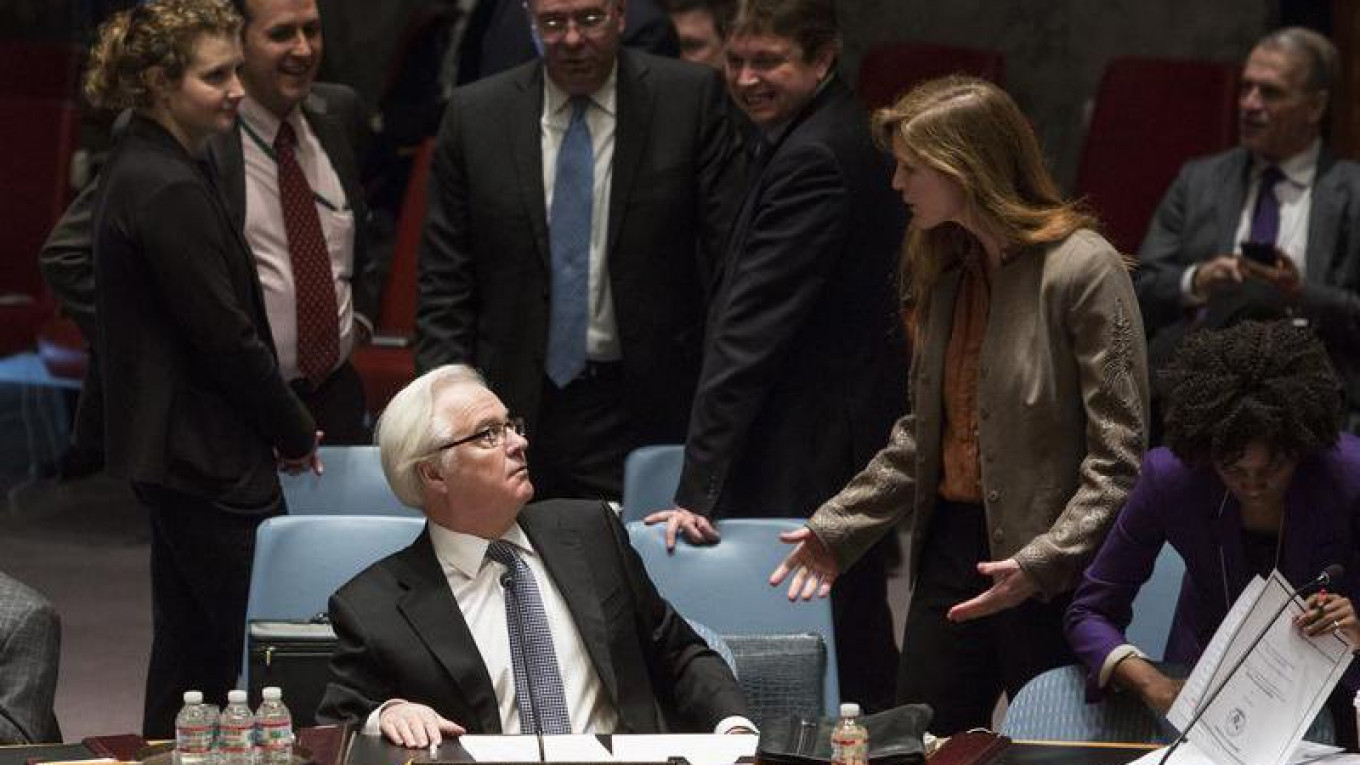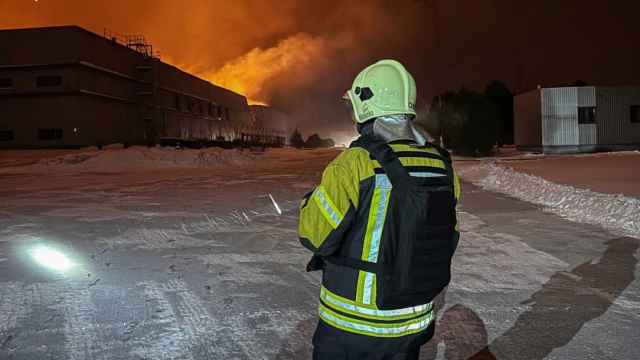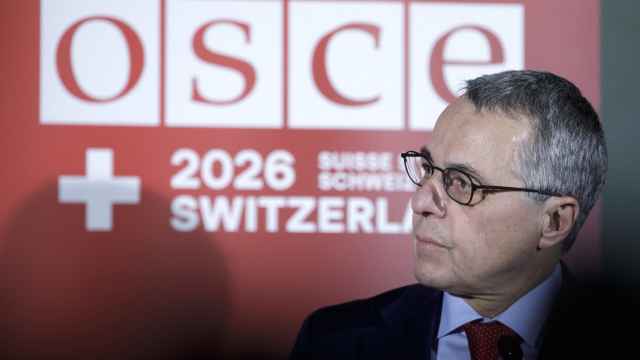Vitaly Churkin, Russia's permanent representative to the United Nations for more than a decade, died suddenly in New York City on Monday, a day shy of his 65th birthday.
There’s still no official word about how exactly the ambassador passed away, though The New York Post reported that he was taken ill “with heart problems,” citing anonymous sources.
In Russia, where the news media often featured Churkin’s combative declaration at the United Nations, his supporters are already lobbying the Kremlin to declare him a national hero.
We look back at some of Vitaly Churkin’s most outspoken remarks in his last few years as Moscow’s man in New York, when he earned a reputation for projecting the Kremlin’s tough talk and geopolitical realism to the world.
“She gave her speech as if she were Mother Teresa herself. Please, remember which country you represent. Please, remember the track record of your country.”
This was Churkin’s response to an angry speech by Samantha Power, then the U.S. ambassador to the UN, in December 2016, when Power asked the Russian Federation, “Is there literally nothing that can shame you?” She was referring to war crimes allegedly committed in Syria by the armed forces of Russia, Iran, the Assad regime.
“She was not interested in what I have to say [...], so there is no point in listening to Ambassador Power.”
The December dust-up was hardly the first bad blood between Churkin and Power. Three months earlier, Russia summoned an emergency meeting of the UN Security Council to discuss a U.S. air strike that reportedly killed Syrian regime soldiers instead of ISIS extremists. Power called the meeting a “stunt.” Churkin said he was fed up with his American counterpart, complaining that there wasn't even any reason to try to listen to her.
Despite these feuds, however, Power and Churkin apparently maintained a good relationship. In a tweet on Monday, Power said the news of Churkin's death had “devastated” her.
“If we’d needed a sermon, we’d have gone to a church. If we’d wanted to hear poetry, we’d have gone to the theater. From UN officials — especially from leaders of the UN Secretariat, when they’re invited to address the Security Council — one expects an objective analysis of events. Clearly you haven’t managed this.”
In October last year, Churkin became similarly angry with Stephen O'Brien, the UN’s under-secretary-general and emergency relief coordinator, who blamed the Syrian humanitarian disaster largely on Russia, calling it “our generation’s shame.” In a preview of his December attack on Power as a Mother Teresa wannabe, Churkin lashed out at O’Brien over what he felt was the West’s anti-Russian sermonizing.
“Sometimes politicians say things and later they regret it.”
Like the best Russian officials, Churkin could be snarky without sounding angry. In September 2016, when U.S. President Obama criticized Vladimir Putin’s high approval polls, comparing them to the similar popularity ratings once enjoyed by Iraqi dictator Saddam Hussein, Churkin quipped reservedly that some politicians are later embarrassed by “unfortunate statements.”
“I think it's quite scandalous that they chose to go after our kids. [...] Here go their family values.”
In late December 2016, the Obama administration ejected 35 Russian intelligence operatives from the United States and imposed sanctions on Russia’s two leading intelligence services. The White House also closed two properties owned by the Russian government, which U.S. official said were used to gather intelligence. Moscow denied the allegations, however, claiming that one of the facilities was merely a recreational site for diplomats and their families.
Churkin accused Obama of trying to destroy holiday fun for Russian diplomats’ children. In response, Vladimir Putin refused to retaliate against U.S. diplomats, and even invited their children to visit the Kremlin for New Year’s and Christmas.
“[Throughout the Ukrainian crisis] the United States has been playing a destructive role. But you actually have to call a spade a spade. [The Americans] have been provocative. After every visit of high-ranking U.S. officials to Ukraine, the Kiev government has stepped up the confrontational nature of its activities.”
In January 2015, less than a year after Moscow annexed Crimea, and as violence spread in eastern Ukraine, tensions between Russia and the United States found the nadir that persisted for the remainder of the Obama administration. Criticizing the Kremlin’s intervention in Ukraine, Samantha Power said, “Time and again President Putin has extended an olive branch in one hand, while passing out grad missiles and tanks with the other.”
In response, Churkin fell back on the interpretation Moscow has consistently offered to explain Ukraine’s current unrest and territorial troubles: the United States emboldens its most radical anti-Russian elements.
“I’ll give a direct answer; Russians don’t want war. We don’t want to escalate the situation.”
How masterful a diplomat was Vitaly Churkin? He uttered the words “we don’t want to escalate the situation [in Ukraine]” on March 14, 2014 — four days before the Russian Federation formally absorbed the Republic of Crimea and Sevastopol.
A Message from The Moscow Times:
Dear readers,
We are facing unprecedented challenges. Russia's Prosecutor General's Office has designated The Moscow Times as an "undesirable" organization, criminalizing our work and putting our staff at risk of prosecution. This follows our earlier unjust labeling as a "foreign agent."
These actions are direct attempts to silence independent journalism in Russia. The authorities claim our work "discredits the decisions of the Russian leadership." We see things differently: we strive to provide accurate, unbiased reporting on Russia.
We, the journalists of The Moscow Times, refuse to be silenced. But to continue our work, we need your help.
Your support, no matter how small, makes a world of difference. If you can, please support us monthly starting from just $2. It's quick to set up, and every contribution makes a significant impact.
By supporting The Moscow Times, you're defending open, independent journalism in the face of repression. Thank you for standing with us.
Remind me later.






